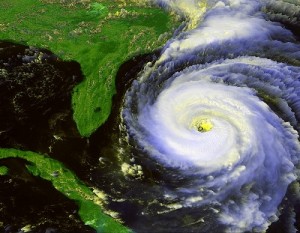Report: Re/insurers Require ‘Mega-Catastrophe’
 The global catastrophe re/insurance industry is overcapitalised and requires “one unprecedented mega-catastrophe or several very large catastrophes in close succession” to turn rates hard similar to the 9/11 terror attacks or the devastating 2005 hurricane season which both propelled the Bermuda sector, says consultancy firm Advisen.
The global catastrophe re/insurance industry is overcapitalised and requires “one unprecedented mega-catastrophe or several very large catastrophes in close succession” to turn rates hard similar to the 9/11 terror attacks or the devastating 2005 hurricane season which both propelled the Bermuda sector, says consultancy firm Advisen.
In a report released today [Feb. 2], Advisen analysts cite the the Bermuda market’s multi-billion dollar capital infusions after the 2001 and 2005 catastrophes which allowed a slew of newly incorporated local re/insurers to exploit gaps in the market and take advantage of higher premiums.
“The insurance pricing cycle is driven by the law of supply and demand,” said the report. “For the past several years, the supply of insurance capacity has exceeded the demand for that capacity, forcing prices down.
“Before a sustainable hard market can happen, either demand must skyrocket, which is unlikely, or roughly $74 billion of excess capacity must be drained from the US property and casualty market. Some insurers are reducing capacity through share buyback programs, but most of the excess capacity probably will be destroyed through underwriting losses — either suddenly as a result of a massive natural catastrophe or gradually through underpriced business.”
The overcapitalisation is substantially an outcome of surging supply as equity markets rebounded in recent months coupled with diminished demand for insurance capacity brought on by the recession, said Advisen.
“The timing, magnitude and duration of the coming hard market will be influenced by new capital,” said the report. “Capital entering the market during the soft phase in anticipation of higher rates could delay the turn, while capital rushing in to take advantage of rising rates in a hardening market could smother the rally. Looking at new capital raised in Bermuda following major loss events in the past, $8.7 billion flowed onto the island to capitalise the ‘Class of 2001′, formed to take advantage of sharply higher premiums triggered in part by the September 11 terrorist attacks, and $5 billion was raised following the record-shattering 2005 hurricane season …
“One unprecedented mega-catastrophe, or several very large catastrophes in close succession, could destroy the excess capacity and trigger a turn in the market, but the more likely scenario is slow, painful hemorrhaging of capital as deeply eroded rate levels take their toll,” said Advisen. “Insurers will have limited ability to offset rising underwriting losses with reserve releases, and investment income will decline as insurers are forced to invest in low-yield fixed income instruments.”
Headquarted in New York, Advisen was established in 2002 to provide Advisen Ltd. provide insight and analysis into underwriting, marketing and purchasing commercial insurance.
Recently Flagstone Re CEO David Brown said the events of 2001 and 2005 had been pivotal turning points for the island’s industry, transforming Bermuda from a leading re/insurance domicile into a major catastrophe re/insurance market.


I keep hearing people, anyone from CEO to CFO esposing this theory that the market needs a good Cat event to wipe out 75 billion to 100 billion in capital to bring back a hard market and the good times. I really know very little about the insurance or re-insurance market but this doesn’t seem to make much sense to me. I appears that too much capital came into formation in the market because people were searching for yield and they thought they saw an opportunity to get say 18-22% returns. Well it turns out that with the great recession, less insurance demand is occuring an less is being ceded to the insurers. On top of this the income side of the equation has disappeared as Treasuries and Fed Funds are so low. So with this troika of too much capital, low yields and less suppply- returns have dumped and expected returns are in the low to single digits instead of the 20% region. Equity holders are trapped and this is reflected in the market cap which is trading at a discount to Book Value- as it should. If you want to get out you can take the big hit now and invest elsewhere or stay with the long route and get your 5% returns. Re- insurance stocks may be trading at a discount to book but book should move up at that 5% rate per annum. Saying that they need to take a capital hit and destroy book value so that there will be a shortage of capital and more opportunity to grow book value at a higher rate is plain simple. I guess there guys think there is an endless line of lemmings to come give them more capital whenever they destroy it?? Please explain.